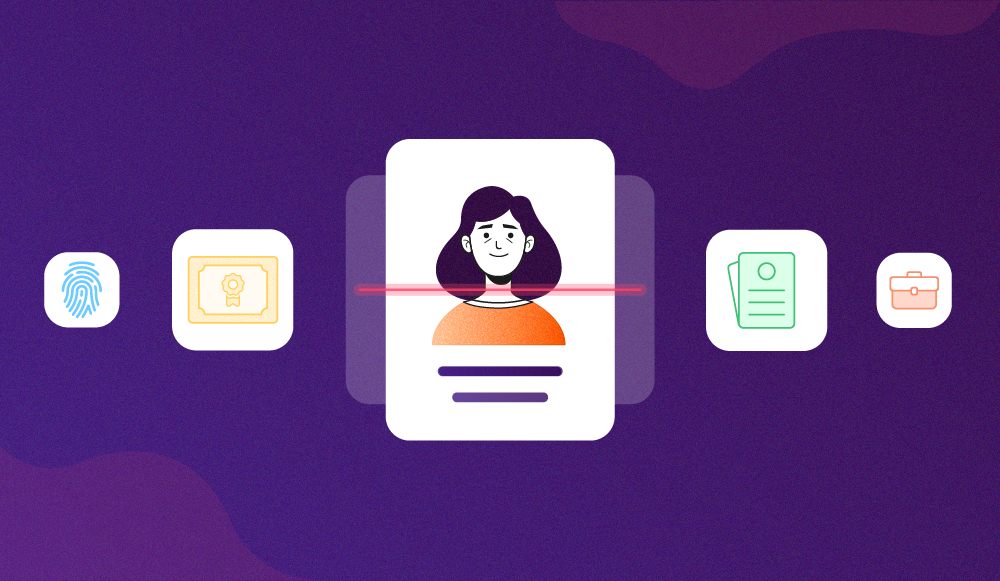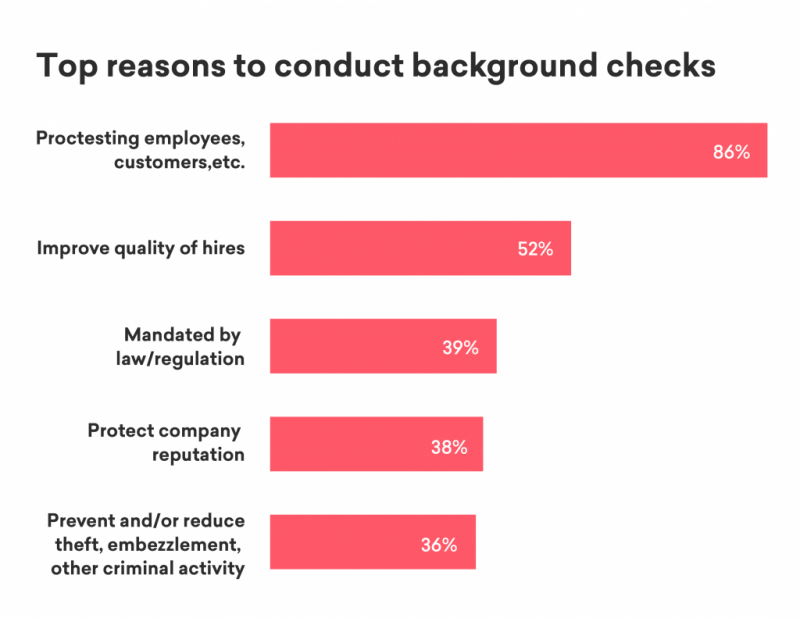The What, When, Why, and How of Foolproof Background Checks

Remember the pilot episode of the TV show Suits? When Mike Ross is trying to get away from the police while carrying a briefcase full of pot, he stumbles into the interview room where Harvey Specter is looking for his law firm’s next associate. Between a pool of Harvard-goers and a stranger with a briefcase full of pot, Harvey picks the latter after learning of Mike’s knowledge and photographic memory and hearing his sob story. What followed was an addictive TV show, but that kind of thing doesn’t happen in real life. Even if it does, it definitely doesn’t turn out so fascinating. In the real world, we do background checks.
What Are Background Checks?
During a background check, you verify the details you have received from an applicant by checking with their previous employers, supervisors, coworkers, educators, and if necessary, the government. In other words, you ask any source other than the applicants themselves to verify the information you have.
Why Should You Conduct Background Checks?
A report from the National Association of Professional Background Screeners found that the top reasons companies do background checks include:

When Should You Conduct Background Checks?
- Before onboarding short-listed candidates, especially for senior or data-sensitive roles: You can run a basic background check for any candidate. In some cases, the law will even require you to run them. You can set background checks up as part of your standard onboarding checklist. Make use of tools like Freshteam to easily replicate this process for every new hire. For roles that require a deeper search, you can pick the appropriate tests and run them. For example, if you are hiring for a role that involves supervising children, you may want to look into a candidate’s drug-use history.
- Rescreening current employees: It is advisable to run background checks when you are promoting employees or moving them to more critical roles. You may also want to periodically conduct background checks just to keep up with the changes in your employees’ lives. You never know — you might catch a few things you missed the first time.
Before you start background checks, you should always ask your applicants for consent. Get the appropriate forms filled and documents signed. It’s not just about abiding by the law: By getting candidate consent, you show candidates that your processes are straightforward and transparent.
4 Things You Need to Have in Place Before You Run Background Checks
• A rock-solid background screening policy that is fair to all.
• Legal counsel on what you can and can’t do.
• If necessary, a background screening service that is compliant with the Fair Credit Reporting Act (FCRA).
• The right attitude toward the process. Don’t treat background checks like a routine. Know that you’ll sometimes make mistakes, so when in doubt, double-check. Give your applicants a chance to clarify anything that seems out of the ordinary.
How Should You Conduct Background Checks?
The most basic and informal of all background checks consists of calling up the candidate’s earlier employers or teammates to get their feedback on the applicant. However, this simple process hardly suffices in a lot of cases. It’s a good idea to use background-check agencies to run relevant checks that can unearth all the important findings. An established agency should be well versed in conducting rigorous investigations, and a formal background check can save you from a lot of legal risks down the line.
What You Can Look For:
• Criminal history
• Driving records
• Credit scores
• Drug history
• Social media background
• Credentials
• References
What Do You Do Once the Background Check Is Complete?
If you find something negative, you don’t need to drop a candidate immediately. We all believe in second chances, don’t we? But by the same taken, that doesn’t mean you should hire a problematic candidate and sink together. Instead, you should look at how relevant these negative findings are to determine how they should affect your decision. Was it a one-time offense, or has it happened consistently? How long has it been since the event in question? What is the risk of hiring this person to your company? How does this negative information affect the position you are hiring for? Give your candidate a chance to explain. When you have asked enough questions and sought satisfactory answers, background checks make good hiring decisions inevitable.
Having trouble attracting the right kind of people to your company? ATS software like Freshteam helps you source great talent across multiple channels and screen them across different stages. There is no replacement for a good background check. Attract. Screen. Hire fantastic people. Repeat!
Freshteam by Freshworks is smart HR software that offers all the tools and features necessary to hire great talent for your company by making your hiring process robust, more effective, and hassle-free. It helps recruiters source, screen, interview, and hire the best candidates with ease, and it has helped transform how numerous businesses recruit. You can check it out for free here.
This article by Freshteam is adapted from the original article that first appeared on the Freshteam blog.
Recruiter.com regularly features reviews, articles, and press releases from leading businesses. This featured article may include paid promotion or affiliate links. Please make every effort to perform due diligence when selecting products and services for your business or investment needs and compare information from a variety of sources. Use this article for general and informational purposes only.

